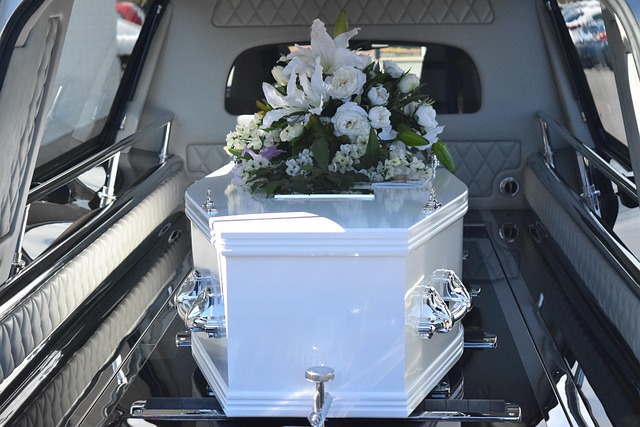The Real Cost of Cremation and Funerals: What You Need to Know
Making funeral arrangements during a time of loss is emotionally challenging, and understanding funeral pricing can feel overwhelming. The cost of cremation and traditional burial services varies significantly based on location, service providers, and personal choices. This comprehensive guide breaks down cremation cost factors, funeral pricing structures, and what families can expect when planning final arrangements.

What Factors Determine Cremation Cost?
Several key elements influence the overall cost of cremation services. The type of cremation service selected plays a primary role in pricing. Direct cremation, which involves no ceremony or viewing, represents the most affordable option. Memorial services held after cremation cost more due to venue hire, flowers, and catering expenses.
Geographic location significantly impacts cremation costs. Urban areas typically charge higher fees than rural locations due to increased operational expenses and property costs. The crematorium facility itself affects pricing, with newer, more modern facilities often commanding premium rates.
Additional services such as body preparation, temporary coffin selection, and urn choice contribute to the final bill. Many families underestimate these supplementary costs when initially budgeting for cremation services.
How Does Traditional Funeral Pricing Compare to Cremation?
Traditional burial services generally cost significantly more than cremation options. Burial expenses include the coffin, burial plot, headstone, grave digging, and often embalming services. These combined costs can exceed cremation expenses by several thousand pounds.
Cremation eliminates many burial-associated costs, including cemetery plot purchases and ongoing grave maintenance fees. However, families choosing elaborate memorial services or premium urns may find cremation costs approaching traditional burial prices.
The time factor also influences comparative costs. Traditional funerals typically require faster decision-making, potentially limiting opportunities to compare prices effectively. Cremation often allows more time for careful consideration of service options and provider selection.
What Are the Hidden Costs in Funeral Services?
Many funeral expenses are not immediately apparent during initial consultations. Transportation fees for the deceased, medical examiner costs, and death certificate charges often appear as separate line items. Floral arrangements, printed materials, and refreshments for memorial services add substantial costs.
Administrative fees frequently catch families unprepared. These may include crematorium booking fees, clergy charges, and musician or organist payments. Weekend or holiday services typically incur premium rates that providers may not initially disclose.
Third-party services such as newspaper obituary notices, memorial website creation, and grief counselling support represent additional expenses. Families should request comprehensive cost breakdowns to avoid unexpected charges.
What Regional Differences Exist in Funeral Costs Worldwide?
Funeral costs vary dramatically across different countries and regions. In the United Kingdom, cremation services typically range from £3,000 to £6,000, while traditional burials can cost £4,000 to £12,000 or more. London and southeast England generally command the highest prices due to property costs and living expenses.
Scotland and Northern Ireland often offer more affordable funeral options compared to England and Wales. Rural areas consistently provide lower-cost alternatives to metropolitan locations across all UK regions.
International comparisons reveal significant variations. European countries like Germany and France typically charge higher funeral costs than the UK, while some Eastern European nations offer considerably lower prices. Cultural and religious traditions strongly influence regional pricing structures worldwide.
How Do Major Funeral Service Providers Compare in Pricing?
Understanding different provider options helps families make informed decisions about funeral arrangements. The UK funeral industry includes large national chains, independent local providers, and direct cremation specialists, each offering distinct pricing structures and service levels.
| Provider Type | Service Options | Average Cost Range |
|---|---|---|
| Co-op Funeralcare | Full service funerals, cremation, burial | £3,200 - £8,500 |
| Dignity Funeral Services | Traditional and contemporary services | £3,500 - £9,000 |
| Pure Cremation | Direct cremation specialists | £1,295 - £2,500 |
| Local Independent Funeral Directors | Personalised local services | £2,800 - £7,500 |
| Simplicity Cremations | Simple, affordable cremation services | £1,195 - £3,000 |
Prices, rates, or cost estimates mentioned in this article are based on the latest available information but may change over time. Independent research is advised before making financial decisions.
Large national providers often offer standardised services with predictable pricing structures, while independent funeral directors may provide more personalised attention and flexible arrangements. Direct cremation companies focus specifically on cost-effective, no-frills services for budget-conscious families.
Many providers offer payment plans and financial assistance programs to help families manage funeral expenses. Comparing multiple quotes and understanding exactly what services are included helps ensure fair pricing and appropriate service levels.
The funeral industry has seen increased transparency in recent years, with many providers now displaying basic pricing information online. This development helps families research options and make preliminary comparisons before engaging directly with funeral directors.
Understanding funeral costs empowers families to make informed decisions during difficult times. While price represents an important consideration, service quality, staff compassion, and cultural sensitivity equally matter when selecting funeral providers. Thorough research and clear communication about pricing expectations help ensure funeral arrangements meet both emotional needs and financial constraints.




